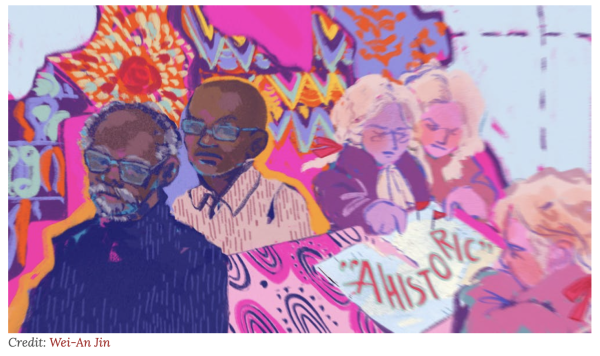
By: Julu Nwaezeapu | Africa to the world: why universities need African histories
No Name In The Street | The study of African history is fundamental to a complete liberal arts education.
Georg Hegel in his famous text, "The Philosophy of History," wrote that Africa is “no historical part of the world; it has no movement of development to exhibit…What we properly understand by Africa, is the Unhistorical, Undeveloped Spirit, still involved in the conditions of mere nature, and presented here only as on the threshold of the World’s History.” More disturbing than Hegel’s ideations about Africa is the esteem to which we hold him today. I’ve read about this guy in sociology classes. When discussing Du Bois’ double consciousness, we used a passage from Hegel’s "Phenomenology of Spirit" to better understand the African-American struggle during the Civil Rights Era. I’m horrified now thinking that I’ve learned about "The Souls of Black Folk" through the eyes of someone who didn’t consider Africa, our ancestral home, a worthy subject of study in the first place.
But the position of Hegel is not so uncommon. Even today, African scholars fight for our histories to be accepted by the academic world. It wasn’t until the late 1950s and 1960s, when several African countries broke their colonial shackles to become independent nations, that Afrocentric histories were taught in universities. This global push to decolonize the continent at a political and intellectual level gave birth to the African Studies Association, one of the first scholarly bodies to disseminate African knowledge in American universities. Though the organization has made great strides since its conception, the legitimacy of Africanist scholarship is still under heavy contention today.
In fact at many universities, students can satisfy liberal arts requirements without taking a single non-Western humanities course. Within academia, Eurocentric perspectives are so highly prioritized that the UNESCO World Social Science Report 2010 reported that social science in Western countries had the most “global influence”.
But the world is becoming increasingly internationalized, and the time to engage in a comprehensive university curriculum is present. If we hope to survive the multitude of moral dilemmas which face modern society, we must have a thorough understanding of the civilizations that came before us. No such understanding of humanity is complete without an exploration of its first people; one cannot construct an accurate history of mankind without first examining its foundations. If universities are institutions that aim to shape young people into global citizens, then we have done these young minds a great injustice by excluding histories from the cultural and evolutionary bedrock of humanity.
More urgently, young people benefit from seeing their experiences — their pasts — represented in the classroom. Including African history in university curricula allows students from the African diaspora to become visible in a world that has long excluded them. Highlighting the contributions Africans have made to the global community can even function as an antiracist practice. When we read about ourselves and our ancestors in textbooks and learn about the complexities of our precolonial pasts, we affirm our value within the modern polity.
Still, it is not enough to simply include African history in university curricula. We must ensure that this history is as authentic and complete as possible — that it does not misrepresent the immense diversity of the continent; that it does not center itself around the arrival of Westerners in the fifteenth century, a mere pittance in the vast timeline of the African story. To share the continent’s truths, we must focalize the work of African scholars. As many African societies relied on oral traditions to mark the past, language barriers make it difficult for foreigners to correctly interpret our complex histories.
